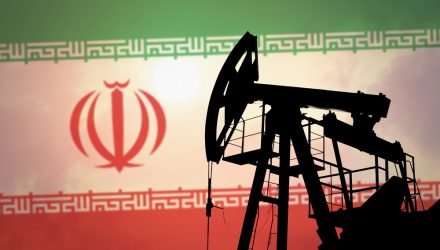Oil prices dropped to $110 per barrel on Thursday after Russia’s invasion of Ukraine briefly led them to skyrocket to more than $116 per barrel for the first time since 2008.
The Wall Street Journal is reporting that the rally was deflated after the prospect of Iranian crude returning to the market was brought to light. The U.S., Britain, France, Germany, Russia, China, and Iran are currently in talks to restore a 2015 deal that lifted sanctions on Iran in exchange for restrictions on its nuclear program. Iran expanded its nuclear program after the U.S. left the deal in 2018. If the deal gets restored, Iran’s oil could help make up for the barrels from Russia that the rest of the world has rejected after the country invaded Ukraine.
This all has huge implications for the Invesco DB Oil Fund (DBO). DBO seeks to track the DBIQ Optimum Yield Crude Oil Index Excess Return (DBIQ-OY CL ER), which is intended to reflect the changes in market value of crude oil. The single index commodity consists of light, sweet crude oil (WTI), and the fund invests in futures contracts to track its corresponding index.
With DBO, investors do not hold direct exposure to the heavy price volatility that comes with holding positions directly in the commodity itself.
DBO could also be used as an inflation hedge as consumer prices continue to push higher along with oil and gas.
“This ETF provides exposure to light sweet crude oil (WTI), which is the most popular oil benchmark in the world,” an ETF Database analysis says. “Commodity exposure in a portfolio used to be a binary choice, either one invested in them, or they did not. Now, commodities have been proven as powerful inflation hedging tools with the power to generate powerful returns for an individual portfolio.”
For more news, information, and strategy, visit the Innovative ETFs Channel.








